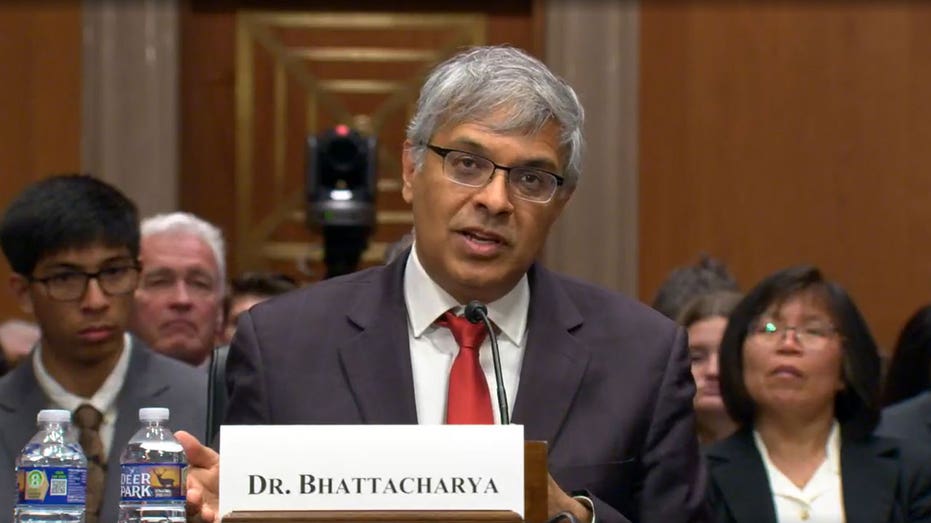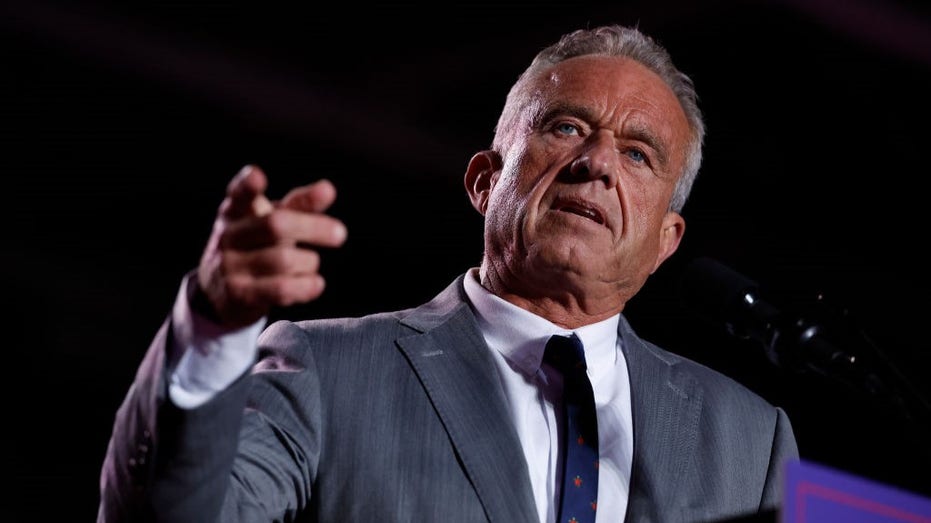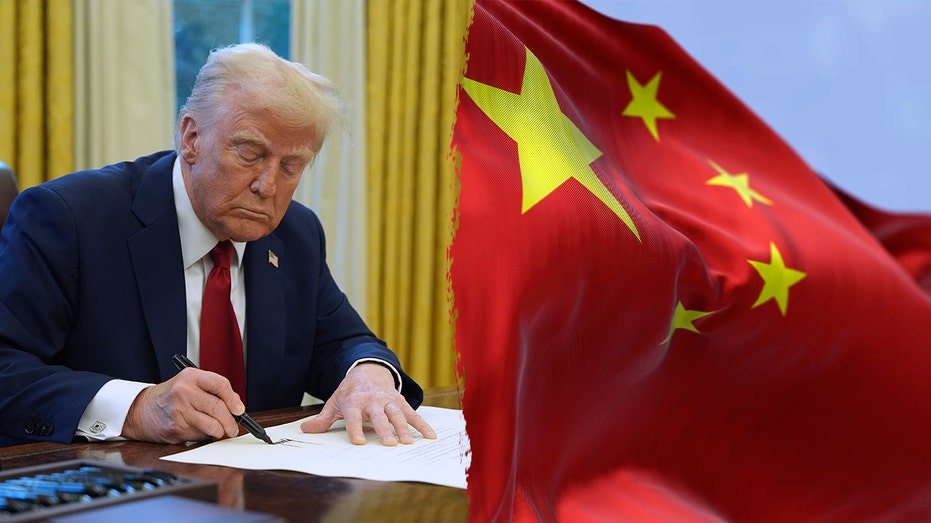- by foxnews
- 08 Apr 2025
Trump NIH appointee defends president's research funding cuts, lays out new vision for future
Donald Trump's pick to lead the NIH, Dr. Jay Bhattacharya, spent much of his time during his confirmation hearing Wednesday defending the president's move to cap indirect research costs doled out by the NIH. However, he also got a chance to lay out his vision for future research at the agency.

Bhattacharya, a physician, Stanford professor of medicine and senior fellow at the university's Institute for Economic Policy Research, would not explicitly say he disagreed with the cuts, or that, if confirmed, he would step in to stop them. Rather, he said he would "follow the law," while also investigating the impact of the cuts and ensuring every NIH researcher doing work that advances the health outcomes of Americans has the resources necessary to do their work.
"There's a lot of distrust about where the money goes because the trust in the public health establishment has collapsed since the pandemic," Bhattacharya said. "I think transparency regarding indirect costs is absolutely worthwhile. It's something that universities can fix by working together to make sure that where that money goes is made clear."
Democratic Sens. Angela Alsobrooks of Maryland and Ed Markey of Massachusetts both pressed Bhattacharya specifically about research that looks into health issues that impact minorities - an area Democrats worry could be undermined at the NIH due to Trump's campaign against the Left's views on diversity, equity, and inclusion (DEI).
When Alsobrooks cited a project Bhattacharya worked on related to Alzheimer's disease, which included mentoring "diverse" professionals, he said that his understanding of that part of the project meant mentoring researchers with a diverse set of ideas, not a diverse set of skin colors.
Bhattacharya acknowledged that "identifying" health disparities among minority groups is important, but emphasized the need for research that drives meaningful outcomes.
Bhattacharya also challenged the premise of a similar line of questioning from Markey, who argued Trump was utilizing ideological flashpoints to "slow" life-saving research.
In addition to addressing numerous questions from Democrats about Trump's funding cuts, Bhattacharya also outlined his plans to reform the NIH's research portfolio during his Wednesday confirmation hearing.
Trump's NIH nominee said he hopes to focus on cutting-edge research and other "big ideas" as opposed to continuing to put all the federal government's money into research that doesn't involve the same ambitious goals. He also briefly spoke about improving the frequency of "validation research" and increasing the number of NIH applications funded for younger investigators.
Bhattacharya agreed with Cassidy that the linkage between autism and vaccines is clear - there isn't one. However, he acknowledged that others may disagree with him. In line with his commitment to embracing dissenting ideas and promoting free speech in medical research, he suggested that commissioning studies could help the public gain a clearer understanding that no link exists.
- by foxnews
- descember 09, 2016
Ancient settlement reveals remains of 1,800-year-old dog, baffling experts: 'Preserved quite well'
Archaeologists have recently unearthed the remarkably well-preserved remains of a dog from ancient Rome, shedding light on the widespread practice of ritual sacrifice in antiquity.
read more





